University of food awards 'Nobel prize for chefs'
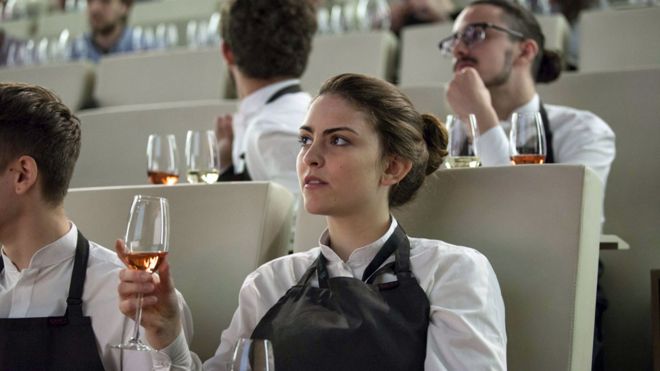
An innovative prize for food that does good as well as tastes good is to be awarded by what must be one of the world's most distinctive universities
This prize for a chef, worth 100,000 euros (£77,000), has been likened to a Nobel prize for food, as it judges the creators of food in terms of how their work has improved society.
The Basque Culinary World Prize is the brainchild of the Basque Culinary Center, which has the unusual distinction of being a university entirely dedicated to food.
The university, in a building that looks like a stack of white plates, is in San Sebastian, in the Basque region on the north coast of Spain.
Heston Blumenthal is part of the international judging panel and he says the idea is to recognise chefs who are "striving to improve society through gastronomy".
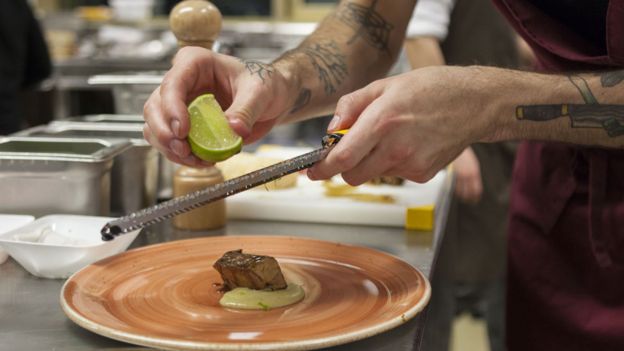
This is about food that is seriously good.
The winner, to be announced on 11 July, will be drawn from a shortlist of global cooking projects.
The UK is represented by Alberto Crisci, who has set up restaurants and is teaching cooking skills in four prisons, with the aim of making inmates more employable and less likely to re-offend.
A number of finalists have linked their cooking to sustainable produce, including Alicia Gironella from Mexico, a "slow food activist" whose work protects local species from becoming extinct.
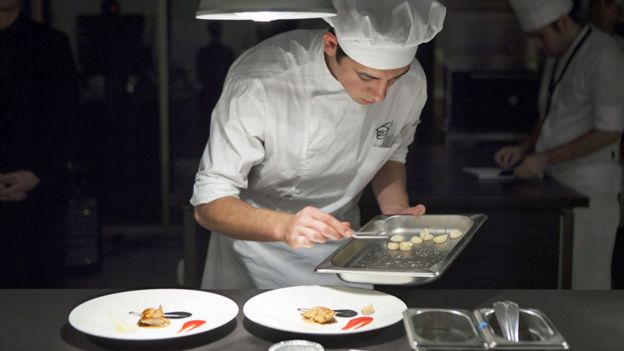
Ann Cooper in the US is shortlisted for her work trying to reduce childhood obesity and Jose Andres from Spain set up kitchens and self-help cookery projects in the wake of natural disasters, such as hurricanes and earthquakes.
This world prize is an appropriate project for the Basque Culinary Center, which is dedicated to creating a different way of looking at food.

But he said the idea of creating an academically rigorous, accredited, four-year degree course was central to the vision.
There were plenty of cookery schools and training projects, but the idea of the Basque Culinary Center was to take food to another level.
If there could be universities dedicated to engineering or science or the arts, then why not food? Why shouldn't it be taken as seriously?
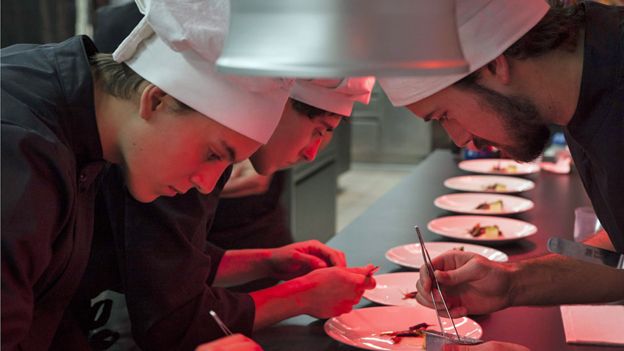
This is a laboratory of food, where the lecture halls have a kitchen on stage and where there are specialist classrooms for baking bread.
The white lab coats hunched over the experiments are being worn by cooks rather than scientists.
The first students of this faculty of gastronomic sciences graduated last summer.
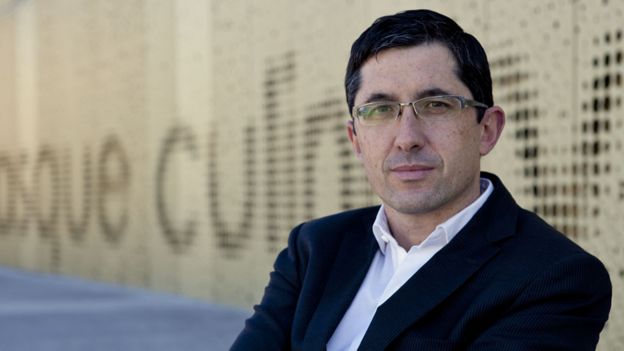
There are lessons in how tastes change and concepts such as "neo-phobia", where a fear of the new becomes a resistance to trying different food.
Prof Aizega says that when new students arrive most of them want to be chefs, attracted by the rock and roll status of celebrity chefs.

Prof Aizega was a former professor of law, but he is now immersed in the study of food.
"There is so much authentic passion in food," he says.
It is a form of cultural self-expression, he says, as much about social identity as nutrition.
Although only about a fifth of students are from the Basque region, the project is strongly linked to the central place of food in Basque culture.
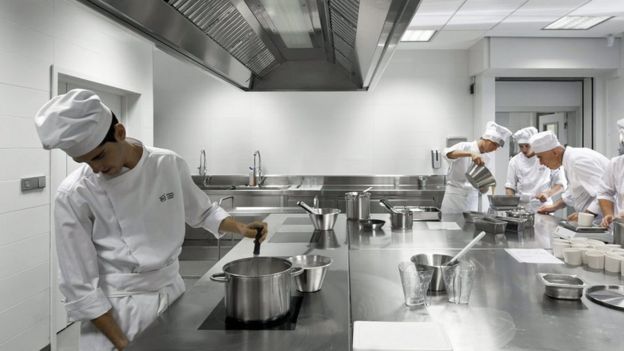
"No one used to listen to chefs, they were expected to stay in the kitchen," he says.
"Now we can see food as a tool of economic regeneration. It's an important part of the tourism industry."
Joan Roca, founder of the El Celler de Can Roca in Girona, Spain, often named as one of the best restaurants in the world, is chair of the prize judges.
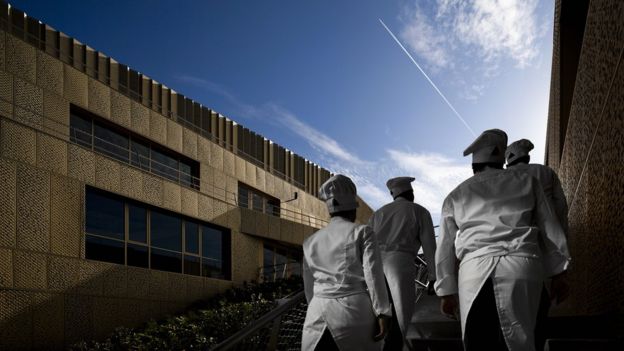
"Cooking is not an end in itself, but a pathway to achieve more important things. It has real power to transform society because it touches everything: education, the environment, entrepreneurship, cultural identity, agriculture, trade.
"For a long time, that power has not been well understood. Today, finally it is.
"The kitchen has proved to be a powerful engine for change."









